August 02, 2017 | Joanne Morrison
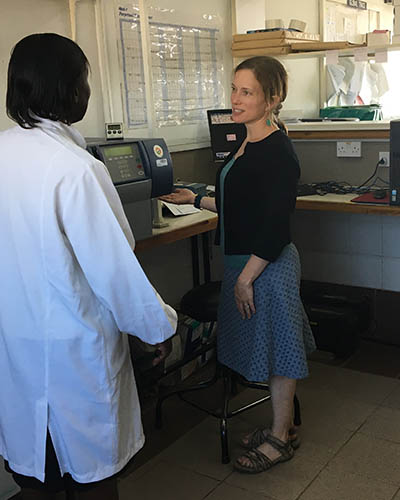
UM School of Medicine Researchers Will Study Impact of HIV Exposure During Pregnancy on Infant Immune Development
The University of Maryland School of Medicine’s (UM SOM) Institute for Global Health (IGH) and the Institute of Human Virology (IHV) have been awarded a $2 million five-year grant from the Eunice Kennedy Shriver National Institute of Child Health and Human Development to study the impact exposure to HIV has on the immune systems of infants in utero and how those changes impact the ability of infants to fight off infections after birth.
The research will be conducted at the IGH’s long-standing research site in Blantyre, Malawi and will follow pregnant women during pregnancy until the infants reach nine months of age. Research will be conducted at the Blantyre Malaria Project (BMP) Research Clinic in the Ndirande Health Centre, which is an affiliate of the University of Malawi College of Medicine. UM SOM researchers have been conducting clinical studies among pregnant women and others living with HIV at this location since 1998.
The Principal Investigators for the UM SOM Grant are Cristiana Cairo, PhD, Assistant Professor of Medicine in IHV and Miriam K. Laufer, MD, MPH, Associate Professor of Pediatrics and Director of the Division of Malaria Research and Associate Director of IGH.
“Our long-term goal is to identify an approach for preventing mother-to-child transmission of HIV that also minimizes the impact of maternal infection on the immune development of infants exposed to HIV but not infected,” said Drs. Cairo and Laufer.
The research comes as nearly 30 percent of all infants born in sub-Saharan Africa are exposed to HIV in utero but are uninfected at birth. It is estimated that in sub-Saharan Africa alone, more than 13.8 million women of childbearing age are living with HIV infection and more than 1.5 million HIV-positive women give birth each year.
Women in sub-Saharan Africa are routinely screened for HIV infection at their first pre-natal visit, which typically takes place at in the second or third trimester. They are then treated with antiretroviral treatment (ART) if diagnosed with HIV infection. While most infants prenatally exposed to HIV do not become infected as a result ART, these infants still have higher morbidity and mortality in the first two years of life due to common infections. The precise mechanism of the increased susceptibility to infection is not yet known and this study will provide one of the most in-depth immunological investigations to begin to understand this phenomenon.
Adaptive Immune Responses of Infants
UM SOM researchers will analyze the adaptive immune responses of infants with different HIV exposure in utero. They will compare if infants born to HIV-infected mothers who were on ART prior to conception are different from mothers who are first diagnosed with HIV infection and treated during their pregnancy. The first group of infants will be exposed to very low levels of HIV, while the second will be exposed to a high level of HIV infection throughout most of the mother’s pregnancy.
The study could ultimately lead to earlier HIV testing and related pre-natal care. “Early HIV testing in all women of child bearing age may have a significant impact on infant health and survival,” said Dr. Laufer, who is also Director of the Division of Malaria Research and Associate Director of Institute of Global Health.
“It is of critical importance to clearly understand the impact of maternal HIV infection on exposed uninfected infant immunity, in order to identify the right strategy to improve the health of HIV-exposed infants throughout the world,” said Dr. Cairo.
Co-investigators for this project include Kirsten E. Lyke, MD., Associate Professor of Medicine; Marcelo B. Sztein, MD, Professor of Pediatrics; and Franklin R. Toapanta Yanchapaxi, MD, PhD, Assistant Professor of Medicine.
“Our researchers have made great progress in understanding the impact HIV has on the immune system. This research will further help us understand the impact of HIV exposure and the best way to intervene to ensure healthy development of children,” said UM SOM Dean E. Albert Reece, MD, PhD, MBA, who is also Vice President for Medical Affairs at the University of Maryland and the John Z. and Akiko K. Bowers Distinguished Professor. “This generous grant from the Eunice Kennedy Shriver National Institute of Child Health and Human Development will allow our scientists to continue their work in HIV treatment and prevention.
This research is supported by the Eunice Kennedy Shriver National Institute of Child Health & Human Development of the National Institutes of Health under Award Number U01HD092308
About the University of Maryland School of Medicine
Commemorating its 210th Anniversary, the University of Maryland School of Medicine was chartered in 1807 as the first public medical school in the United States. It continues today as one of the fastest growing, top-tier biomedical research enterprises in the world -- with 43 academic departments, centers, institutes, and programs; and a faculty of more than 3,000 physicians, scientists, and allied health professionals, including members of the National Academy of Sciences, and a distinguished recipient of the Albert E. Lasker Award in Medical Research. With an operating budget of more than $1 billion, the School of Medicine works closely in partnership with the University of Maryland Medical Center and Medical System to provide research-intensive, academic and clinically-based care for more than 1.2 million patients each year. The School has over 2,500 students, residents, and fellows, and nearly $450 million in extramural funding, with more than half of its academic departments ranked in the top 20 among all public medical schools in the nation in research funding. As one of the seven professional schools that make up the University of Maryland, Baltimore campus, the School of Medicine has a total workforce of nearly 7,000 individuals. The combined School and Medical System (“University of Maryland Medicine”) has a total budget of $5 billion and an economic impact of nearly $15 billion on the state and local community. The School of Medicine faculty, which ranks as the 8th-highest public medical school in research productivity, is an innovator in translational medicine with 600 active patents and 24 start-up companies. The School works locally, nationally, and globally, with research and treatment facilities in 36 countries around the world. Visit medschool.umaryland.edu
About the Institute of Global Health
The IGH, established in 2015 at the University of Maryland School of Medicine, is dedicated to improving global health by conducting innovative, world-leading research in Baltimore and around the world. Led by Founding Director Christopher Plowe, MD, MPH, FASTMH, the institute develops new and improved ways of diagnosing, preventing, treating, controlling, and eradicating diseases of global impact. Currently, these diseases include malaria, Ebola, and vaccine-preventable infectious diseases such as measles.
About the Institute of Human Virology
Formed in 1996 as a partnership between the State of Maryland, the City of Baltimore, the University System of Maryland, and the University of Maryland Medical System, the IHV is an institute of the University of Maryland School of Medicine and is home to some of the most globally-recognized and world-renowned experts in all of virology. The IHV combines the disciplines of basic research, epidemiology, and clinical research in a concerted effort to speed the discovery of diagnostics and therapeutics for a wide variety of chronic and deadly viral and immune disorders - most notably, HIV the virus that causes AIDS. For more information, visit www.ihv.org and follow us on Twitter @IHVmaryland.
Learn More
Contact
Department of Anesthesiology
(410) 328-6120 (phone)
(410) 328-5531 (fax)
swalsh@som.umaryland.edu
University of Maryland School of Medicine
Joanne Morrison
Director of Marketing and Public Relations
University of Maryland School of Medicine
jmorrison@som.umaryland.edu
Office:(410) 706-2884
Mobile:(202) 841-3369
Related stories
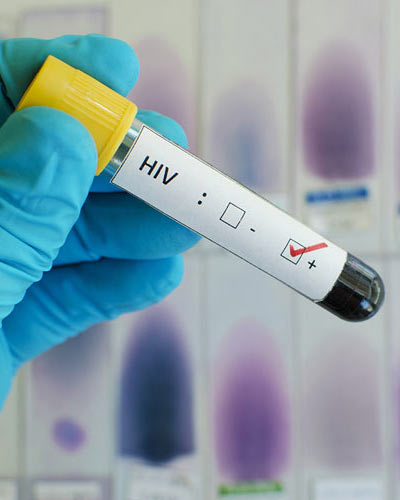
Monday, November 24, 2025
New Study Identifies Key Mechanism Driving HIV-Associated Immune Suppression
Researchers from the Institute of Human Virology (IHV) at the University of Maryland School of Medicine have discovered how a specific type of immune cell may contribute to the persistence of HIV infections. The finding offers new insight into why the virus remains difficult to cure even with effective antiretroviral therapy.
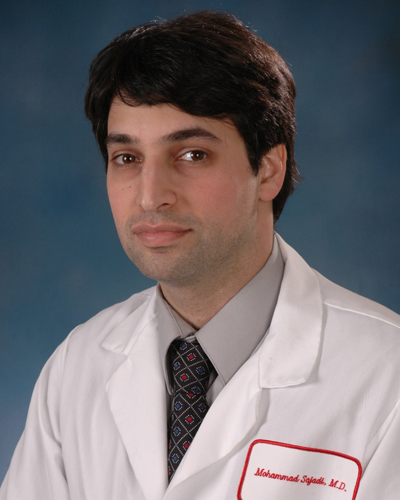
Wednesday, March 20, 2024
New Study Reveals Insights into Lack of Durability in COVID Antibody Response to Infections & Vaccines
Researchers at the Institute of Human Virology (IHV) at the University of Maryland School of Medicine published a new study in the Journal of Infectious Diseases investigating the short-lived antibody response following SARS-CoV-2, the virus that causes COVID.
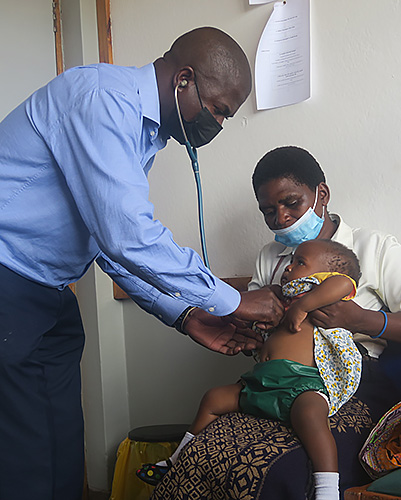
Tuesday, August 09, 2022
New Study Confirms Typhoid Vaccine Safety, Immune Response in Children
A new study, published in The Lancet Global Health, finds typhoid conjugate vaccine, Typbar TCV®, provides immunity for up to 3 years in children as young as 9 months old in Malawi. The research – conducted by the Blantyre Malaria Project, Malawi-Liverpool-Wellcome Trust, and researchers at the Center for Vaccine Development and Global Health (CVD) at the University of Maryland School of Medicine (UMSOM) – found that the TCV vaccine is safe and well tolerated. Importantly, the vaccine can be given to 9-month-old infants at the same time as routine measles-rubella vaccinations without reducing the immune response to either vaccine.

Friday, May 20, 2022
NIH Grant Awarded to Study HIV Drug-Resistant Genetic Mutations Across Africa
University of Maryland School of Medicine (UMSOM)’s Institute of Human Virology (IHV) researchers received funding from the National Institutes of Health’s National Institute of Allergy and Infectious Diseases (NIAID) for $2.7 million to study genetic changes in two genes from the HIV-1 virus that may make it resistant to antiretroviral therapy. The study, named INSPIRE, will analyze genetic variation in types of HIV circulating in a handful of African countries that will help to better understand the implications of these mutations and will improve clinical management of patients.
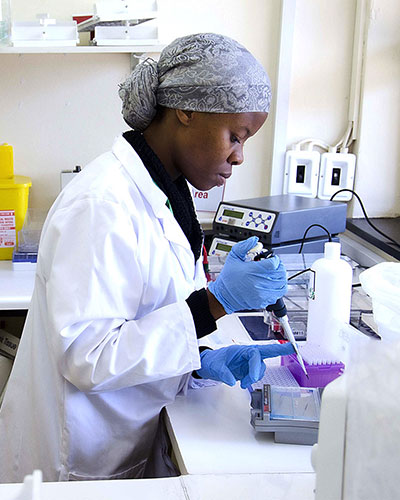
Thursday, September 16, 2021
First Efficacy Results from Africa find Typhoid Vaccine to offer 84 Percent Protection against Typhoid Fever
A new study, published in the New England Journal of Medicine, finds a single dose of typhoid conjugate vaccine (TCV) – the only typhoid vaccine licensed for children as young as 6 months – is safe and 84 percent effective in protecting against typhoid in Blantyre, Malawi. These are the first efficacy results from Africa and part of a five-year, multi-country project to accelerate introduction of TCV.

Tuesday, July 06, 2021
UM School of Medicine Researchers Receive NIH Avant-Garde Award for Out-Of-Box Concept to Cure HIV and Treat Co-Existing Addiction
Linda Chang, MD, MS, Professor of Diagnostic Radiology & Nuclear Medicine at the University of Maryland School of Medicine (UMSOM), received the National Institute on Drug Abuse (NIDA) 2021 Avant-Garde Award (DP1) for HIV/AIDS and Substance Use Disorder Research — a National Institutes of Health (NIH) Director’s Pioneer Award. This prestigious award supports researchers with exceptional creativity, who propose high-impact research with the potential to be transformative to the field.

Monday, June 24, 2019
UM School of Medicine's Institute of Human Virology Awarded $40 Million Grant to Conduct HIV Population Surveys
Man Charurat, MD, Professor of Medicine, Director, Center for International Health, Education, and Biosecurity (CIHEB), and Director, Division of Epidemiology and Prevention, Institute of Human Virology (IHV) at the University of Maryland School of Medicine (UMSOM), has been awarded a five-year grant from the U.S. Centers for Disease Control and Prevention (CDC) to conduct HIV population-based HIV impact assessments worldwide to measure the progress towards the control of the HIV epidemic

Friday, September 22, 2017
UM SOM Research Supports New Approach for Protecting Infants from Malaria
Malaria is a major cause of death for children throughout sub-Saharan Africa. In this high transmission area, they are at risk of severe malaria early in life when their immune system has not developed enough to protect them.

Monday, March 20, 2017
Pediatric Infectious Disease Specialist, Dr. Miriam Laufer, to Head Division of Malaria Research at the University of Maryland School of Medicine
Christopher Plowe, MD, MPH, the Frank M. Calia Professor of Medicine at the University of Maryland School of Medicine (UM SOM), and director of the UM SOM Institute for Global Health (IGH), as well as UM SOM Dean E. Albert Reece, MD, PhD, MBA, announced today that Miriam K. Laufer, MD, MPH, will be the new Director of the Division of Malaria Research (DMR) at IGH.

Tuesday, October 25, 2016
"A Call to End HIV/AIDS in America" IHV Director Dr. Robert Gallo's Op-Ed in the Huffington Post
As the new Administration is presented with great challenges facing the United States, one will be a longtime foe, the U.S. HIV/AIDS epidemic. Since President Barack Obama was elected in 2008, I have publicly called on our country’s leaders to utilize the largest global health initiative in history - the President’s Emergency Plan for AIDS Relief (PEPFAR) - as a model to address the U.S. epidemic.
